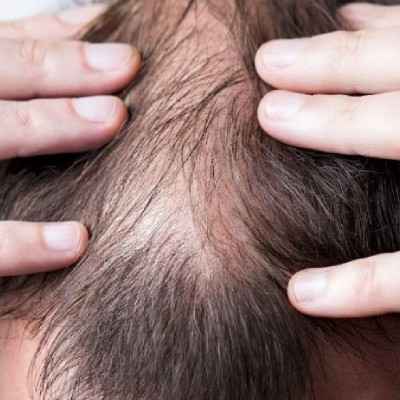Why Is Hair Loss Diagnosis Important Before Hair Transplantation?

18 May 2022

Hair Experts @ AHS

An accurate hair loss diagnosis is vital for successful and everlasting hair restoration. Hair loss or alopecia can’t always be attributed to age or poor diet, as multiple kinds of alopecia can affect both men and women. Although the problem is more prevalent in adults and the elderly, children may also experience hair problems during their late adolescence or teen years.
An accurate hair loss diagnosis is vital for successful and everlasting hair restoration. Hair loss or alopecia can’t always be attributed to age or poor diet, as multiple kinds of alopecia can affect both men and women. Although the problem is more prevalent in adults and the elderly, children may also experience hair problems during their late adolescence or teen years.
Hair loss can either occur abruptly or worsen gradually over a few months or years. Although everyone experiences some normal shedding of about 50 to 100 hair strands a day, according to the AAD, excessive hair shedding is a sign of a severe underlying problem. Therefore, finding the cause behind your excessive hair loss problem becomes essential for the hair experts to chart an effective alopecia treatment plan.
What Is Hair Loss Diagnosis?
Because various factors can trigger hair loss, it’s best to start with a thorough hair loss diagnosis. Like any other health condition, your hair expert must perform a complete diagnosis to narrow down different causes and personalise the finest hair fall treatment for your condition. Hair transplants are possible as a hair restoration treatment only in a few types of alopecia.
A hair loss diagnosis will require you to undergo a detailed dermatological evaluation, alopecia test, and blood tests. The psychological and mathematical aspects (precise calculation of donor and recipient area) of hair fall and your medical history are also considered when determining the appropriate hair loss treatment plan.
However, before undergoing a hair transplant, you must have perfect health. For this reason, the hair specialists will perform a scalp diagnosis to determine the type of hair fall or baldness and to ascertain the conditions favourable for covering the bald area. A thorough health checkup often accompanies scalp diagnosis. This is necessary to determine your fitness and eligibility for a hair transplant.
How Is a Hair Loss Diagnosis Performed?
Before a hair transplant procedure, your hair expert will advise different health checkups. A computerised alopecia test helps find the correct number of hair strands which need to be implanted onto your scalp to achieve maximum density and lasting results. You will also have to take different routine blood tests to confirm your overall eligibility for a hair transplant.
Some of these common blood tests include CBC, PT, Anti HCV, HBV (HBsAg), CT, random blood sugar, and HIV 1&2. Patients over 45 years of age or with a history of cardiac-related issues will also need an ECG (Electrocardiogram) report along with an evaluation report from the cardiologist.
The tests listed below help diminish the risk of complications during a hair transplant procedure. Your hair expert will inspect all reports before starting the procedure to avoid complications.
- Body Glucose Test: Also called the HbA1c test, Body Glucose Test checks blood sugar levels and shows whether or not the patient has diabetes. It’s important to have a balanced blood sugar level before your hair transplant surgery. Diabetic patients can still receive hair transplants if they regularly take controlling medicines. Also, your hair specialist will thus create a treatment plan to promote fast wound healing.
- HIV Test: HIV is a virus that attacks your immune system and compromises your body’s ability to prevent infection. As a result, such individuals have AIDs. A patient with a positive HIV report is not eligible for a hair transplant.
- Hepatitis B and C Tests: Hepatitis B and Hepatitis C are viral infections that lead to poor liver functioning. Both of these diseases are highly infectious and transmissible. Hence a positive report for Hepatitis B and C tests will make a patient ineligible for a hair transplant procedure due to high infection risk.
- Coagulation Tests: Coagulation tests study your blood’s ability to clot and how long it takes to clot. This allows your hair specialist to rule out the risk of bleeding during the hair transplant procedure. If the test shows a blood clotting problem, your hair specialist will suggest alternative hair loss treatments instead of a hair transplant.
- Blood Pressure Measurement: Your blood pressure measurement is taken before the hair transplant surgery. The patient must have normal blood pressure at the time of the hair transplant, or the procedure can’t be performed if the patient has low or high blood pressure.
The feeling of anxiousness before the hair transplant procedure or lack of sleep can also impact your blood pressure, which is not serious. In case you have a history of taking medication to control pressure, you can still get a hair transplant upon your physician’s approval. Make sure that you take the suggested dose to control blood pressure at the time of the procedure.
For candidates with cardiac issues or hypertension, additional tests are needed, such as ECG/EKG. The hair specialists will also need to understand your situation of hair loss. For this reason, you will need to get other tests like serum thyroid profile, hormone tests, and iron/ferritin profile to rule out complications.
Additionally, the ongoing pandemic situation has made it mandatory for patients to undergo the COVID -19 RT PCR test before most types of treatments. The hair transplant procedure is no exception to the rule.
Importance of Hair Loss Diagnosis

Hair loss and hair shedding are often used synonymously, but the two are very different types of hair problems. Stressors, like the birth of a baby or a high fever, can trigger excessive hair shedding, which is temporary and, oftentimes, not a serious problem. You can still consider seeking hair fall treatment from a hair specialist.
On the other hand, hair loss is a situation where your body’s natural hair growth process slows down or stops on the scalp area. The underlying cause could be a hereditary factor, an overreaction of the immune system, a side effect from certain medication, or more. This means that your scalp hair growth will not resume or restart unless the cause is resolved or treated.
The importance of the hair loss diagnosis in the success of a hair loss treatment cannot be emphasised enough. The cause of hair loss for every patient differs. An accurate diagnosis helps create the right hair restoration treatment plan that is perfectly tailored to treat the problem from its source and give optimal hair restoration outcomes.
The correct diagnosis of your health condition and hair loss problem eliminates serious complications and assists in creating a well-rounded hair fall treatment plan. Your test results further help in the smooth completion of the hair transplant procedure and boost the chances of a quick recovery and permanent results you had expected.
Conclusion
Hair loss or alopecia treatments become more effective with an accurate hair loss diagnosis. The general medical examinations in the diagnosis give your hair specialists vital information about your health condition, chronic diseases, and allergies. Hair and scalp analysis provide an in-depth understanding of the hidden cause of hair loss or balding, which helps the hair specialists deliver completely natural-looking results that will last your lifetime.
Advanced Hair Studio uses the advanced technology and techniques on the market to ascertain the type of alopecia for your hair loss situation and help you consider a hair transplant. Our Advanced Hair Check is a smart combination of dermatological evaluations, health checks, and other necessary examinations to deliver the results you expect. Visit us for a hair loss diagnosis and hair fall treatment consultation today.
Stay Updated
Subscribe to our email newsletter for helpful tips and valuable resourses
Be an influencer
Join forces with Advanced Hair Studio! Explore exciting collaboration opportunities tailored for influencers. Let's redefine haircare together.
Connect now












